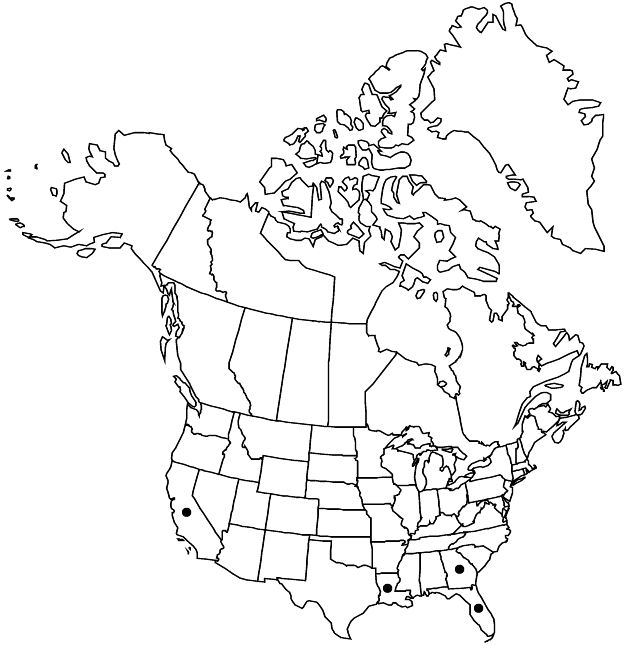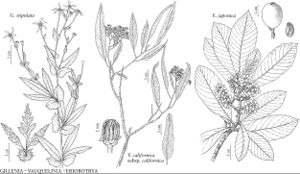Difference between revisions of "Eriobotrya japonica"
Trans. Linn. Soc. London 13: 102. 1821.
FNA>Volume Importer |
imported>Volume Importer |
||
| (2 intermediate revisions by 2 users not shown) | |||
| Line 36: | Line 36: | ||
|elevation=0–100 m | |elevation=0–100 m | ||
|distribution=Calif.;Fla.;Ga.;La.;Asia (China);introduced also in Mexico;West Indies;Central America;South America;Europe;n;s Africa;Pacific Islands (New Zealand);Australia. | |distribution=Calif.;Fla.;Ga.;La.;Asia (China);introduced also in Mexico;West Indies;Central America;South America;Europe;n;s Africa;Pacific Islands (New Zealand);Australia. | ||
| + | |introduced=true | ||
|discussion=<p>Naturalized plants of <i>Eriobotrya japonica</i> are only sporadically found in North America. The species is apparently native to east-central China (Gu C. and S. A. Spongberg 2003c), but it has long been cultivated and is now spontaneous in a much larger Asian area. The species is cultivated widely for its fruit in warm temperate and subtropical regions.</p> | |discussion=<p>Naturalized plants of <i>Eriobotrya japonica</i> are only sporadically found in North America. The species is apparently native to east-central China (Gu C. and S. A. Spongberg 2003c), but it has long been cultivated and is now spontaneous in a much larger Asian area. The species is cultivated widely for its fruit in warm temperate and subtropical regions.</p> | ||
|tables= | |tables= | ||
| Line 60: | Line 61: | ||
|publication year=1821 | |publication year=1821 | ||
|special status=Illustrated;Introduced | |special status=Illustrated;Introduced | ||
| − | |source xml=https:// | + | |source xml=https://bitbucket.org/aafc-mbb/fna-data-curation/src/2e0870ddd59836b60bcf96646a41e87ea5a5943a/coarse_grained_fna_xml/V9/V9_730.xml |
|subfamily=Rosaceae subfam. Amygdaloideae | |subfamily=Rosaceae subfam. Amygdaloideae | ||
|tribe=Rosaceae tribe Gillenieae | |tribe=Rosaceae tribe Gillenieae | ||
Latest revision as of 23:58, 5 November 2020
Stems: bark ± smooth. Leaves: petiole 6–10 mm; blade margins dentate in distal 1/2, lateral veins 15–25 per side, apex acute. Inflorescences: branches stiff, densely rufous-tomentose, with 1–3 barely reduced leaflike bracts, flowers ± sessile; bracteoles deciduous, narrowly triangular, margins entire, rufous-tomentose. Flowers: sepals 3 × 3 mm; petals ± spreading, often notched, 8–10 mm. Pomes: flesh sweet. Seeds 3–5, black, ovoid, shiny. 2n = 34.
Phenology: Flowering spring.
Habitat: Redwood forests, suburban and urban woodlots
Elevation: 0–100 m
Distribution

Introduced; Calif., Fla., Ga., La., Asia (China), introduced also in Mexico, West Indies, Central America, South America, Europe, n, s Africa, Pacific Islands (New Zealand), Australia.
Discussion
Naturalized plants of Eriobotrya japonica are only sporadically found in North America. The species is apparently native to east-central China (Gu C. and S. A. Spongberg 2003c), but it has long been cultivated and is now spontaneous in a much larger Asian area. The species is cultivated widely for its fruit in warm temperate and subtropical regions.
Selected References
None.
